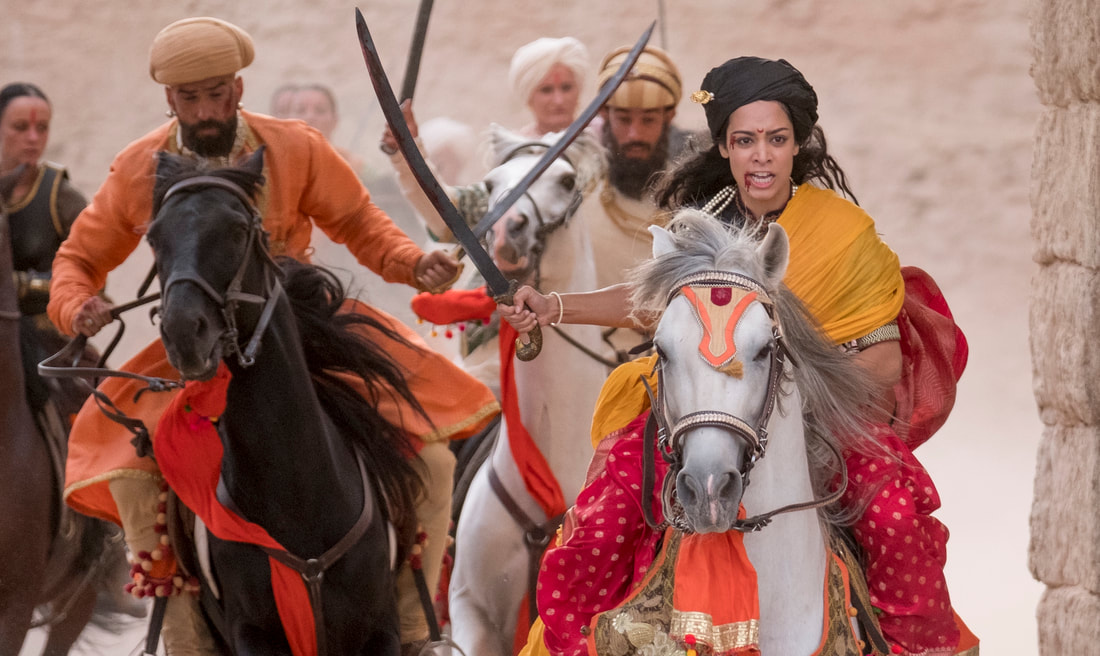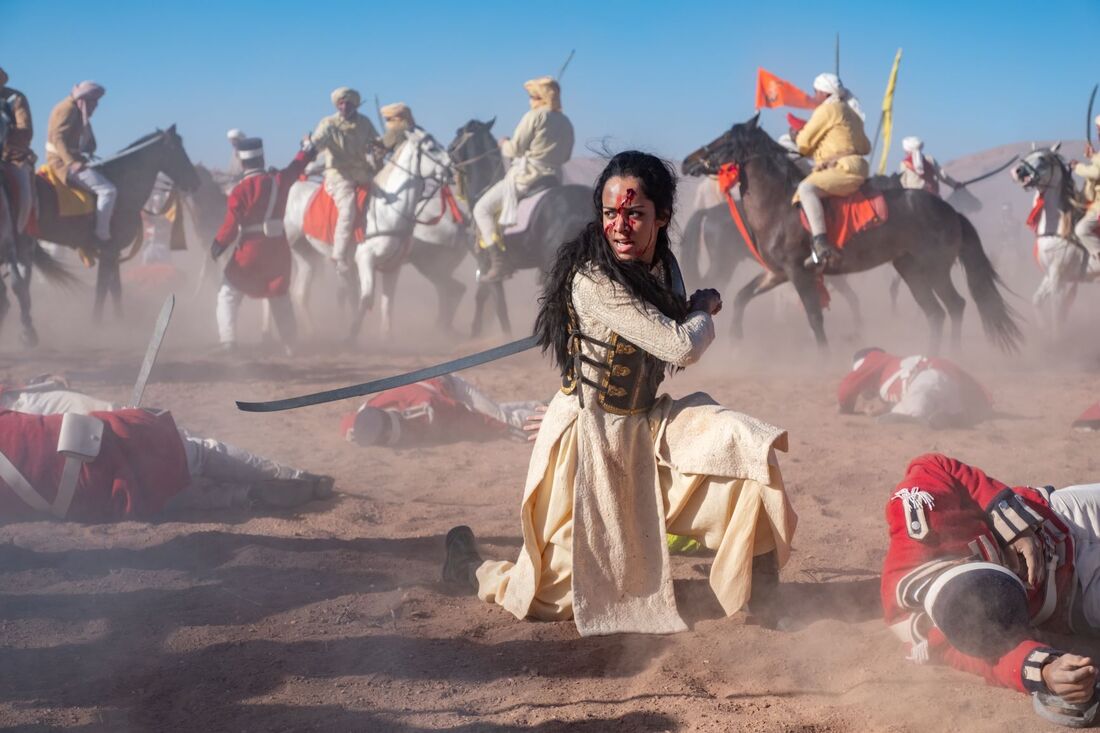|
Review by Sean Boelman The Warrior Queen of Jhansi, co-written and directed by Swati Bhise, is a new historical drama based on an inspiring and true story. However, despite the legendary icon whose life served as the basis of the film, this is a disappointingly shallow and bland period piece with little to offer but a positive message. The movie tells the story of Lakshmibai, the Rani of Jhansi, as she led her army into battle against the British Empire and the British East India Company. One of the film’s biggest shortcomings is that, while this story is interesting, the script fails to adequately connect this to the bigger picture of the Indian Rebellion of 1857. For example, reference is made to the Sepoys and the pork-fat coated cartridges that were a major factor in the war, but the movie doesn’t explore the religious aspects of this conflict with much depth. Instead, a majority of the film’s runtime is spent creating an idyllic portrait of the protagonist as a hero of the Indian people. Although the Rani is undeniably an impressive figure in Indian history that deserves quite a bit of respect, this movie fails to acknowledge the contributions made by other leaders in this admittedly huge turning point in that country’s history. While it is nice to see perspectives like this on history being seen, this film is unable to effectively convey the scope of this moment in history to an audience that is likely unfamiliar with this story. Since this is such a little-known historical event, one would expect that the movie would be a fascinating story on its own, yet the script is so weighed down by formula and convention that the end result often feels boring. Even the battle sequences, which could have been the film’s saving grace, do not make the movie any more interesting because they feel like they were included out of obligation rather than a natural need for them in the story. Bhise’s direction is sadly uninspired, yet that may result from the fact that she is a first-time director. The battle sequences are particularly frustrating, as better choreography or even some kinetic cinematography could have went a long way in making the film much more exciting. With a better and more experienced director at the helm, some much-needed life could have been breathed into the movie.
That said, the film does offer a positive role model in the eponymous leader. Though the restricted rating (for violence) will likely keep those who need to see this movie the most from hearing the inspiring story of the Rani, young women who get to see the film will likely find themselves inspired by the empowering tale of how the protagonist took control of her own life and stood up for a cause in which she believed. Devika Bhise, the daughter of the writer-director, does a very good job in her leading role. Having co-written the script with herself in mind, it is obvious that the role plays to her strengths, and as a result, she lends the character a natural charisma that makes the story slightly more compelling. Unfortunately, although the supporting cast includes some recognizable faces, such as Rupert Everett, none of them give a turn that is particularly memorable. Although there is some value in The Warrior Queen of Jhansi as an inspiring story for young women, one can’t help but feel like it is a missed opportunity. Maybe one day this extraordinary story will receive the cinematic treatment it deserves. The Warrior Queen of Jhansi opens in theaters on November 15. Rating: 2.5/5
0 Comments
Leave a Reply. |
Archives
July 2024
Authors
All
|
|
|
disappointment media
Dedicated to unique and diverse perspectives on cinema! |


